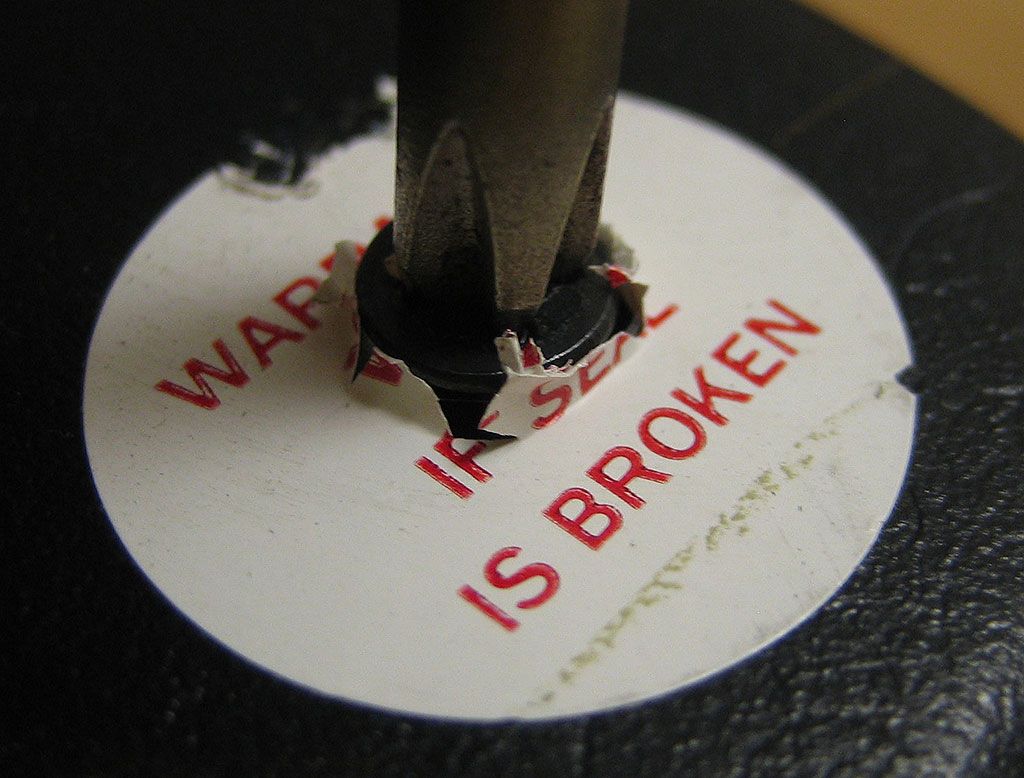FTC warns companies ‘warranty void if removed stickers’ are potentially illegal
The FTC is cracking down on questionable warranty provisions, including the use of stickers that must remain intact.

If you ever thought to yourself that those "warranty void if removed stickers" that often adorn various electronics are bullshit, good news—the Federal Trade Commission thinks so too. In an attempt to crack down on conditional warranty coverage, the FTC sent letters outlining its concerns over warranty clauses to six "major companies," and it specifically mentioned those stickers.
The FTC didn't say which specific companies it sent letters to, but did mention they include firms that market and sell automobiles, cellular devices, and gaming systems in the United States.
"Provisions that tie warranty coverage to the use of particular products or services harm both consumers who pay more for them as well as the small businesses who offer competing products and services," said Thomas B. Pahl, Acting Director of the FTC’s Bureau of Consumer Protection.
The FTC is concerned that companies might be violating the Magnuson-Moss Warranty Act, which is a law that governs consumer product warranties and prohibits certain restrictions. In its letters, the agency provided three examples of what it deems to be "questionable provisions" found on different products. They include:
- The use of [company name] parts is required to keep your . . . manufacturer’s warranties and any extended warranties intact.
- This warranty shall not apply if this product . . . is used with products not sold or licensed by [company name].
- This warranty does not apply if this product . . . has had the warranty seal on the [product] altered, defaced, or removed.
According to the FTC, those types of provisions are generally prohibited unless a company provides free part replacements and repairs, or has received a waiver from the FTC.
With regard to the warranty stickers, companies often place labels over screws or other parts of hardware that inevitably end up broken if opening the device. The stickers warn that removing or otherwise destroying them will immediately void the manufacturer's warranty. This in effect forces consumes to forgo do-it-yourself repairs or paying a potentially reduced rate to a third-party repair shop, rather than going through the manufacturer.
The FTC says "it is illegal to condition warranty coverage on the use of specified parts or services." Companies receiving letters on the topic are being asked to review their warranty terms to make sure they are in compliance with the law, Furthermore, the FTC says it will be reviewing each company's website after 30 days to ensure compliance, otherwise they may face legal action.
Keep up to date with the most important stories and the best deals, as picked by the PC Gamer team.
Paul has been playing PC games and raking his knuckles on computer hardware since the Commodore 64. He does not have any tattoos, but thinks it would be cool to get one that reads LOAD"*",8,1. In his off time, he rides motorcycles and wrestles alligators (only one of those is true).


